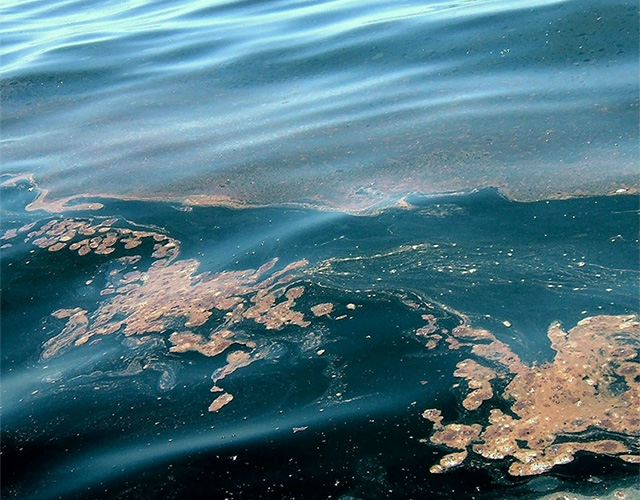Acinetobacter species var. IN-2
Biological treatment of oil-contaminated objects.

Oil and oil products are one of the most dangerous and widespread pollutants of soils and water bodies. Enough to pour in the water, 1 liter of oil to destroy more than 100 million fish larvae and other marine organisms, as in water of rivers, lakes and oceans every year falls from 2 to 10 million tons of oil. Space survey recorded that about 30% of the ocean surface covered by an oil film.
Accidental losses of oil in Russia, due to the depreciation of pipelines and equipment, and non-observance of technological discipline during the drilling, operation, storage and transportation of oil and oil products, reach 25 million tons per year.
Currently the main methods of oil spill removal on the ground are mechanically harvested, in some cases with the use of sorbents, followed by burning or burial of residues by sprinkling sand or peat.
Chemical methods (surfactants, dispersants, hardeners) are used mainly for water purification.
Microbiological methods are among the most progressive technologies and is based on the use of oil-oxidizing bacteria for the degradation of petroleum products. The advantages of biological methods of disposal are not only their comparative cheapness, but almost 100% recycling of end products, the total reduction of anthropogenic load due to the use of natural processes.
Laboratory and equipment allows carrying out product test and research on-site.
Our company constantly carries out modernization of the production facilities and increases output
Quality management system of the company is certified according to ISO 9001:2008 standards by the international agency TUV NORD CERT
Close cooperation and collaboration with research institutes, scientists and professors helps in new product development.
The company consults farmers how to optimize feed rations and how to use enzymes, antibiotics and other products.
Large warehouses allow to satisfy the customers’ demands in biological products.